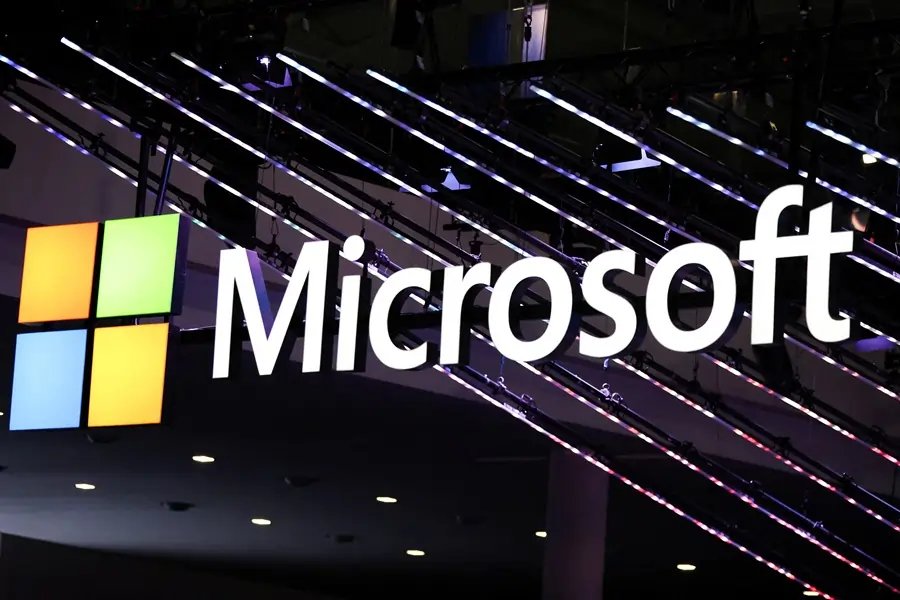Microsoft’s AI demand under scrutiny as investors seek payday
Published by Jessica Weisman-Pitts
Posted on October 28, 2024
3 min readLast updated: January 29, 2026

Published by Jessica Weisman-Pitts
Posted on October 28, 2024
3 min readLast updated: January 29, 2026

By Aditya Soni
(Reuters) – Microsoft is expected to report its slowest quarterly revenue growth in a year on Wednesday, while investors await signs of AI demand amid growing worries about the slow payoff from hefty investments in the technology.
The software giant is widely seen as the front-runner in the race to capitalize on generative AI, in part thanks to its investment in ChatGPT-owner OpenAI. But recent reports point to slow adoption for its key products including the $30-per-month Copilot assistant for enterprises.
There’s “a wall of worry” around Microsoft’s earnings, Morgan Stanley analysts said, pointing to “ramping capital expenditures, margin compression, lack of evidence on AI returns, and messiness post a financial resegmentation.
The results are the first since the company in August rejigged the way it reports its businesses to align them more closely with how they are managed. That move has, however, made it harder to estimate last quarter’s performance.
The company’s stock has risen just about 1% since it last reported results in late July, widely underperforming the benchmark S&P 500. But the stock is around 14% higher for the year.
Microsoft’s Azure cloud-computing unit likely grew 33% in the company’s fiscal first quarter ended Sept. 30, according to seven analysts polled by Visible Alpha. That is in-line with the company’s expectations, but a tad lower than the fourth quarter.
While AI’s contribution to Azure has risen – and accounted for 11 percentage points of growth in the fourth quarter – the overall business has slowed. Microsoft said in July it expected Azure growth to pick up in the second half of the fiscal year.
Microsoft’s total revenue is expected to have risen 14.1% to $64.51 billion in the September quarter, according to analysts polled by LSEG.
Microsoft has warned – like its AI rivals – that spending on the technology will remain high.
Capital spending in the September quarter is estimated to have jumped 71.7% to $19.23 billion, according to Visible Alpha.
COPILOT SKEPTICISM
Copilot has not taken off the way Microsoft had predicted.
A survey of 152 information technology companies showed the vast majority of them had not progressed their Copilot initiatives past the pilot stage, research firm Gartner said in August.
Some analysts believe, though, that Microsoft’s recent moves including the ability to create autonomous AI agents – which are capable of doing routine tasks without human intervention – with the help of Copilot could boost adoption of the assistant.
“Most investors seem skeptical of 365 Copilot adoption since they aren’t using it personally very much,” Melius Research analyst Ben Reitzes said. However, it seems Copilot data points are getting modestly better,” he said, adding that the assistant “boasts an increasingly improving customer list.
Microsoft’s productivity and business processes unit – home to Office products, LinkedIn and 365 Copilot – is expected to report stable quarter-on-quarter growth of 12%, according to Bernstein’s Mark Moerdler, among the top-rated analysts for the company, according to LSEG.
Revenue at intelligent cloud, which houses Azure, likely increased by 20%, the same pace as the previous quarter, Moerdler estimated. He added that growth in the more personal computing unit, which includes Windows and gaming, likely ticked up as the PC market stabilized.
(Reporting by Aditya Soni in Bengaluru; Editing by Sayantani Ghosh and Shinjini Ganguli)
Artificial intelligence (AI) refers to the simulation of human intelligence in machines that are programmed to think and learn like humans. It encompasses various technologies, including machine learning and natural language processing.
Cloud computing is the delivery of computing services over the internet, allowing users to access and store data and applications on remote servers instead of local computers. It offers flexibility and scalability for businesses.
Revenue growth is the increase in a company's sales over a specific period, typically expressed as a percentage. It indicates the company's ability to expand its business and increase profitability.
Capital expenditure (CapEx) refers to the funds used by a company to acquire, upgrade, or maintain physical assets such as property, buildings, or equipment. It is essential for long-term growth.
Explore more articles in the Technology category











